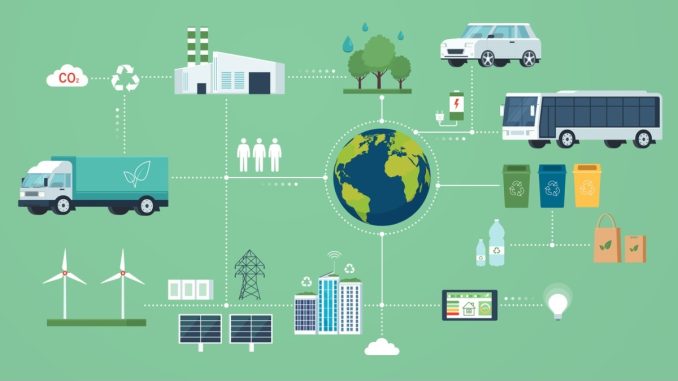
Welcome to our blog! In today’s fast-paced world, consumers are more conscious than ever about the impact their purchasing decisions have on the environment. As a result, there is an increasing demand for eco-friendly products and services. This has led businesses to adopt sustainable supply chain practices in order to meet these consumer demands and contribute towards a greener future.
In this article, we will explore the importance of supply chain sustainability and how it can help businesses thrive in today’s market. We’ll delve into different types of sustainable supply chain practices, factors influencing them, recent trends, and the benefits they offer. Whether you’re a business owner looking to enhance your brand image or a consumer interested in making informed choices, this article has something for everyone.
So grab a cup of coffee (sustainably sourced, of course!) and join us as we dive into the world of sustainable supply chains and discover how they are meeting consumer demands for eco-friendly products. Let’s get started!
The Importance of Supply Chain Sustainability
Supply chain sustainability is more than just a buzzword; it’s a crucial aspect of businesses today. With increasing concerns about climate change and environmental degradation, consumers are becoming increasingly conscious about the products they buy and their impact on the planet. This has put pressure on companies to reevaluate their supply chain practices.
One of the key reasons why supply chain sustainability is important is its potential to reduce carbon emissions and minimize waste throughout the entire production process. By implementing sustainable practices such as using renewable energy sources, optimizing transportation routes, and reducing packaging materials, companies can significantly decrease their environmental footprint.
Moreover, embracing sustainability in the supply chain can help improve resource efficiency and operational effectiveness. By carefully managing resources like water, energy, and raw materials, businesses can not only minimize waste but also save costs in the long run.
Another significant benefit of incorporating sustainability into the supply chain is that it enhances brand reputation. Consumers are increasingly drawn towards brands that prioritize eco-friendly practices and social responsibility. By adopting sustainable initiatives throughout their operations, companies can differentiate themselves from competitors while attracting environmentally-conscious customers.
Furthermore, integrating sustainability into supply chains helps create positive relationships with stakeholders such as suppliers, employees, investors, and communities. When businesses prioritize ethical sourcing practices or contribute to local development through fair trade initiatives or community projects along their value chains they build trust among these stakeholders.
In conclusion (just kidding!), understanding the importance of supply chain sustainability goes beyond meeting consumer demands for eco-friendly products; it sets forth a path towards responsible business practices that benefit both our planet and future generations!
Types of Sustainable Supply Chain Practices
There are various types of sustainable supply chain practices that businesses can implement to meet the growing consumer demands for eco-friendly products. These practices aim to reduce environmental impact, promote social responsibility, and ensure long-term viability.
One type of sustainable supply chain practice is responsible sourcing. This involves selecting suppliers who adhere to ethical and sustainable standards in their production processes. By partnering with suppliers who prioritize sustainability, companies can ensure that their products are produced in an environmentally friendly manner.
Another important practice is resource optimization. This involves minimizing waste and maximizing the efficient use of resources throughout the supply chain. Companies can achieve this by implementing recycling programs, reducing packaging materials, or using renewable energy sources in their operations.
Supply chain transparency is also crucial for sustainability. Consumers today want to know where their products come from and how they were made. By providing clear information about the origins and production processes of their goods, companies can build trust with consumers and demonstrate a commitment to sustainability.
Collaboration is another key aspect of sustainable supply chains. Businesses can work together with suppliers, customers, and other stakeholders to share best practices and find innovative solutions for sustainability challenges. Collaborative efforts can lead to more efficient transportation methods or the development of new eco-friendly materials.
There’s a growing trend towards circular economy practices in supply chains. Instead of following a linear model where products are created, used once, then discarded as waste, circular economy principles focus on designing products that have a longer lifespan or can be easily recycled or repurposed.